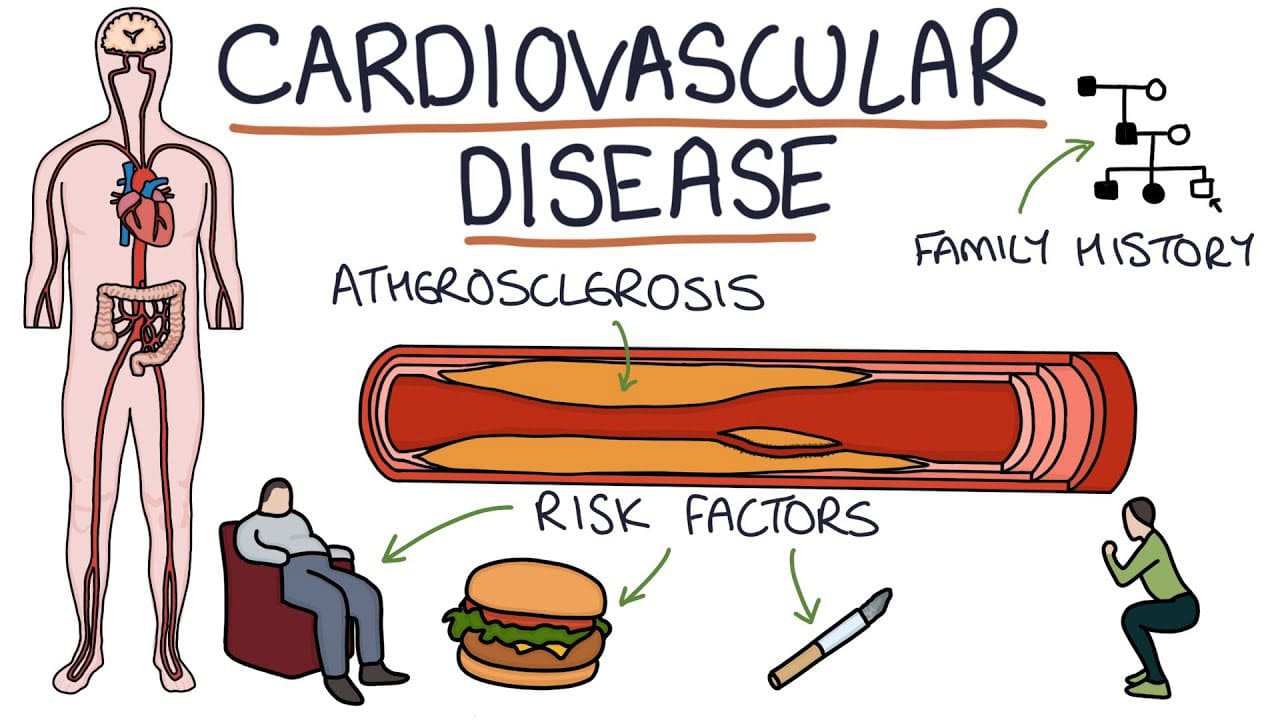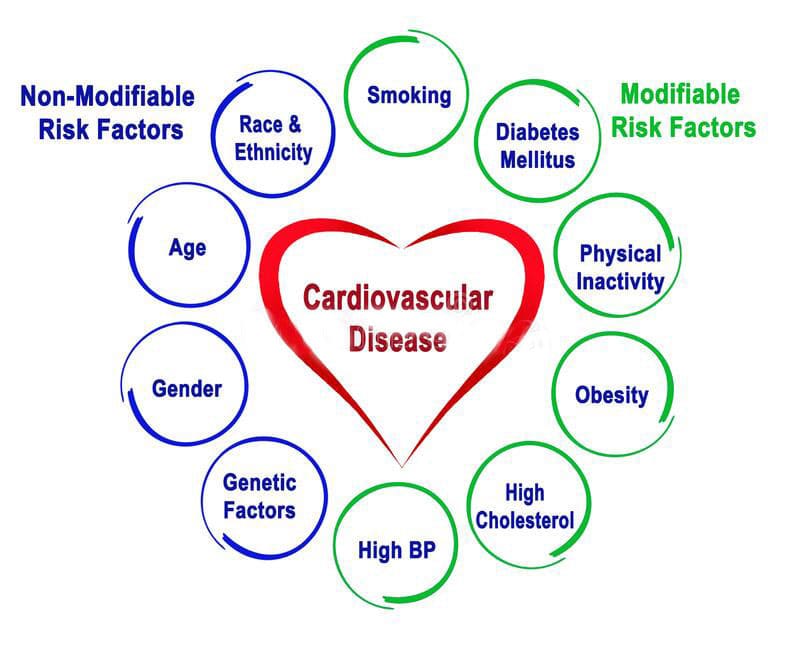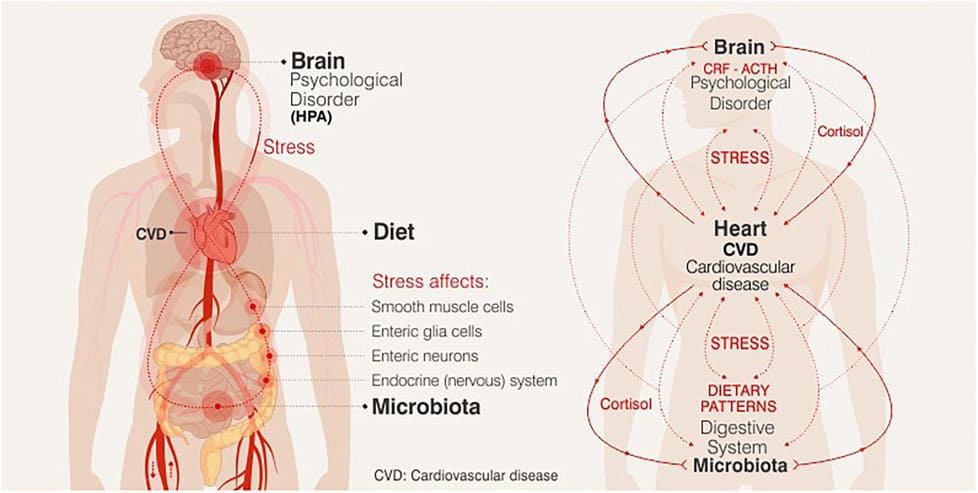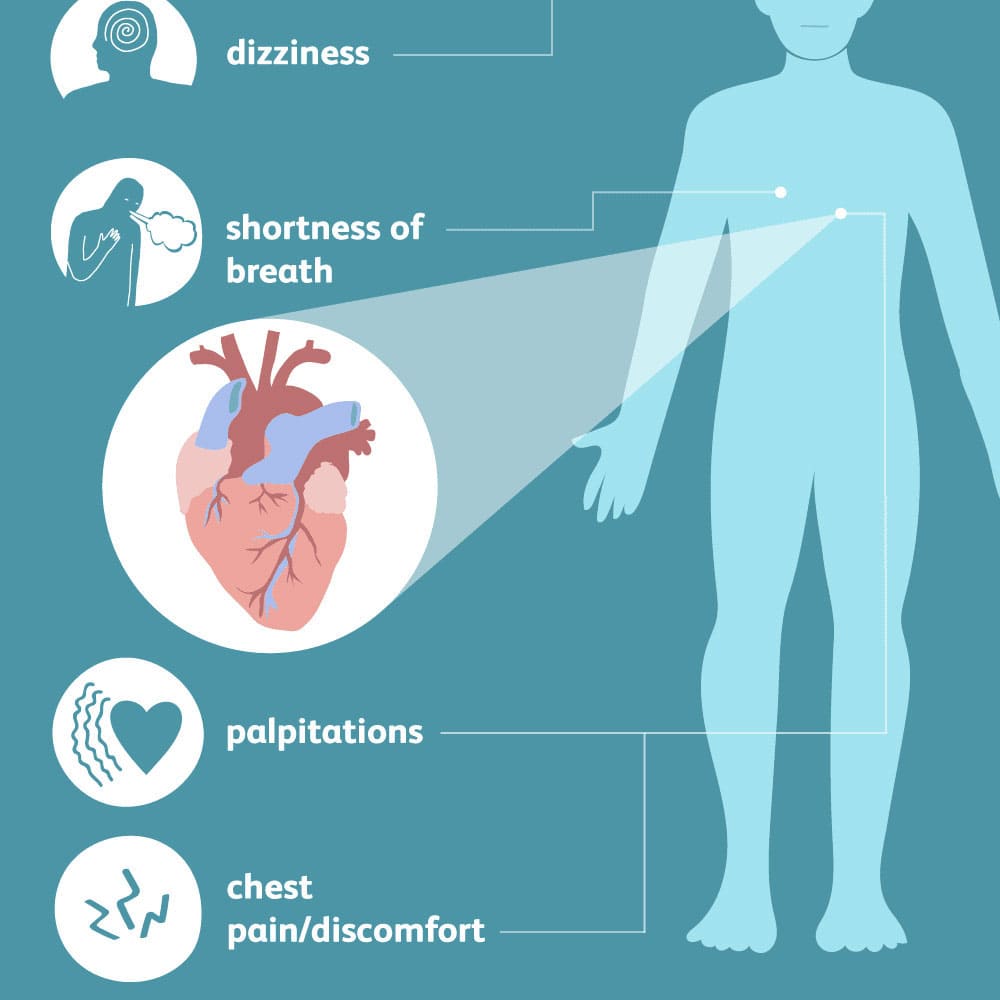Learn How to Reduce Cardiovascular Disease
10
June
2021

"Give Your Heart a Head Start"
Cardiovascular diseases (CVDs) are a group of disorders that involve the heart or blood vessels. CVD includes coronary artery diseases, cerebrovascular disease, rheumatic heart disease, and other conditions. The CVDs conditions include stroke, heart failure, hypertensive heart disease, rheumatic heart disease, cardiomyopathy, abnormal heart rhythms, congenital heart disease, valvular heart disease, aortic aneurysms, peripheral artery disease, thromboembolic disease, and venous thrombosis. Cardiovascular diseases are the main cause of death worldwide. CVDs are taking approximately 17.9 million lives each year. Major deaths are due to heart attacks and strokes. Coronary artery disease and stroke result in 80% of CVD deaths in males and 75% of CVD deaths in females.
Types Of Cardiovascular Diseases
There are many cardiovascular diseases involving the blood vessels.
- Coronary artery disease (also known as coronary heart disease)
- Peripheral arterial disease - It is a blood vessels disease that supply blood to the arms and legs
- Cerebrovascular disease - It is also a blood vessels disease that supply blood to the brain (includes stroke)
- Renal artery stenosis
- Aortic aneurysm
There are also many cardiovascular diseases involving the heart.
- Cardiomyopathy - diseases of cardiac muscle
- Hypertensive heart disease - the heart disease secondary to high blood pressure or hypertension
- Heart failure
- Pulmonary heart disease - Heart failure on the right side
- Cardiac dysrhythmias - abnormalities of heart rhythm
- Inflammatory heart disease
- Endocarditis
- Inflammatory cardiomegaly
- Myocarditis
- Eosinophilic myocarditis
- Valvular heart disease
- Congenital heart disease - heart structure malformations existing at birth
- Rheumatic heart disease - heart muscles and valves damage due to rheumatic fever

The Common Symptoms Of Cardiovascular Diseases
Symptoms are varying as per the particular condition. Some conditions, such as diabetes or hypertension, may cause no symptoms at all. CVD can cause symptoms anywhere in the body.
Symptoms of an underlying cardiovascular disease include:
- Pain or pressure in the chest, which indicates angina
- Pain or discomfort in the center of the chest
- Pain or discomfort in the arms, left shoulder, elbows, jaw, or back
- Numbness of the face, arm, or leg, especially on one side of the body
- Shortness of breath
- Nausea and fatigue
- Lightheadedness or dizziness
- Cold sweats
- Confusion
- Difficulty speaking or understanding speech
- Difficulty seeing with one or both eyes
- Difficulty walking
- Loss of balance or coordination
- Severe headache with no known cause
- Fainting
- Unconsciousness

Causes of CVD
The exact cause of CVD is not clear yet, because of many disorders. There are lots of things that can increase your risk of getting cardiovascular diseases.
If you have more than one risk factor, more chances of developing CVD. Reduce the risk factors for your better future and life.
Risk factors
Millions of people struggle to control the risk factors that cause cardiovascular disease. Many people are unaware that they are at high risk of CVDs. The lifetime risk of CVD is more than 50% for both men and women.
Risk factors for CVD include:
- High blood pressure, or hypertension
- Atherosclerosis or blockages in the arteries
- Radiation therapy
- Smoking
- Poor sleep hygiene
- High blood cholesterol, or hyperlipidemia
- Diabetes (high blood sugar or glucose)
- High carbohydrate diet
- Physical inactivity
- Obesity
- Sleep apnea
- Excessive alcohol consumption
- Stress
- Air pollution
- Chronic obstructive pulmonary disorder
People at high cardiovascular risk with one or more risk factors such as hypertension, diabetes, hyperlipidemia or already established disease need early detection and treatment.
Numerous heart attacks and strokes can be prevented by controlling major risk factors through lifestyle interventions and drug treatment where necessary.

"Join the Fight, Treat Your Heart Right"
Treatment
The treatment option is dependent on the specific type of CVD. Some options include:
- Medication - The medication used to reduce low-density lipoprotein cholesterol, and it helps improve blood flow, or regulate heart rhythm
- Surgery - Coronary artery bypass grafting, Coronary angioplasty, Heart valve surgery (valve repair or replacement surgery), Pacemaker, Carotid endarterectomy (PDF)
- Cardiac rehabilitation - It includes exercise and lifestyle counseling
Treatment of CVDs aims to ease the symptoms, reduce the risk of the condition or disease recurring or getting worse. It helps prevent complications, such as hospital admission, heart failure, stroke, heart attack, or death.
Also, depending on the condition, your doctor may try to stabilize heart rhythms, minimize blockages, and relax the arteries to enable a better flow of blood.
Prevention
Up to 90% of CVD may be preventable. Prevention of CVD involves improving risk factors that are healthy eating, exercise, avoidance of tobacco smoke, and limiting alcohol intake. Also treating risk factors, such as high blood pressure, blood lipids and diabetes is favorable.
There are many things you can reduce your chances of getting heart disease:
- Control your blood pressure - High blood pressure is the main risk factor for heart disease. If you have high blood pressure, get regularly checked for your blood pressure. To prevent or control high blood pressure, make changes in your lifestyle
- Keep your cholesterol levels under control - High levels of cholesterol can raise your risk of coronary artery disease and heart attack. Lifestyle changes and appropriate medicines can lower your cholesterol.
- Keep your triglyceride levels under control - Triglycerides are an alternate type of fat that is present in the blood. High levels of triglycerides may also raise the risk of coronary artery disease, particularly in women.
- Maintain healthy body weight - Obesity can increase your blood cholesterol and triglyceride levels, high blood pressure, and diabetes which may lead to a rise in your risk for heart disease. Control your body weight by doing exercise and eating healthy food. This helps lower the risk of CVDs.
- Take a healthy meal - Try to avoid food items that contain saturated fats, high sodium, and added sugars. Eat enough fresh fruit, vegetables, and whole grains. The DASH diet can help you to lower your blood pressure and cholesterol.
- Regular physical exercise - Exercise has many benefits, and it helps in preventing most CVD disorders. It should become part of regular life. Everyone should spend at least 30 to 45 minutes daily in exercise. Physical exercise improves your circulation, maintains a healthy weight, lowers cholesterol and blood pressure. Overall, these can lower your risk of heart disease.
- Avoid drinking alcohol - Drinking too much alcohol can add extra calories, which may cause weight gain. It also raises your blood pressure. These two factors raise your risk of heart disease. Stop drinking alcohol.
- Don't smoke - Tobacco smoking is the most important preventable cause of many disorders. Cigarette smoking raises your blood pressure and leaves you at higher risk for both heart attack and stroke. Quitting smoking is the most cost-effective approach to prevent CVD. You can talk with your health care provider for help to quit smoking.
- Manage stress - Stress is linked to many diseases in many ways. Excessive stress can be a "trigger" for a heart attack. It can also raise your blood pressure. Many ways can help you to manage your stress which includes exercise, listening to music, focusing on something calm or peaceful, and meditating.
- Sleep - Make sure that you get enough sleep. Sleep gives your body rest. If you don't get enough sleep, you raise your risk of high blood pressure, obesity, and diabetes, which ultimately risk heart disease. Complete your sleep of 7 to 9 hours in the night. If you have any problem with sleep, contact your healthcare provider.
If you or anyone you know is suffering from any cardiovascular diseases, contact Hill Regional Hospital. We provide complete healthcare services from primary to emergency care to the Hillsboro families.
Don't be late if you feel pain in your chest, our cardiac care teams provide you complete heart care services. For any emergency or to book an appointment with our experts, call us on 254-580-8500.